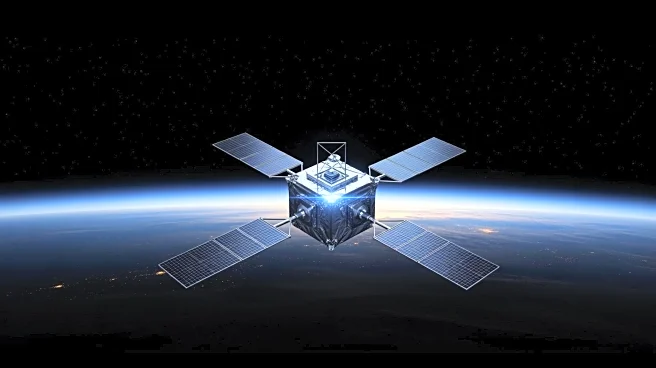What's Happening?
Researchers at Julius-Maximilians-Universität Würzburg have successfully demonstrated the autonomous control of a satellite's orientation using artificial intelligence. The In-Orbit Demonstrator for Learning Attitude Control (LeLaR) project utilized deep
reinforcement learning to enable the satellite to adjust its attitude without human intervention. This breakthrough was achieved with the InnoCube nanosatellite in low Earth orbit, which autonomously adjusted its orientation using mechanical reaction wheels. The AI system was trained in a lab environment before being deployed in space, marking a significant advancement in satellite technology.
Why It's Important?
The successful implementation of AI for satellite orientation control represents a major step towards full autonomy in space operations. This technology can enhance the efficiency and safety of satellite maneuvers, reducing reliance on human operators and pre-programmed routines. Autonomous satellites can adapt to unforeseen circumstances, potentially lowering operational costs and accelerating deployment timelines. The development of intelligent, adaptive satellite systems could revolutionize space exploration and satellite management, paving the way for more complex and self-sufficient space missions.
What's Next?
The demonstration opens the door for further advancements in autonomous satellite technology. Future developments may include AI systems capable of managing other satellite functions, such as signal calibration and system health monitoring. As AI technology continues to evolve, it is likely to play a pivotal role in the design and operation of next-generation satellites, enhancing their capabilities and expanding their applications in space exploration and communication.
















